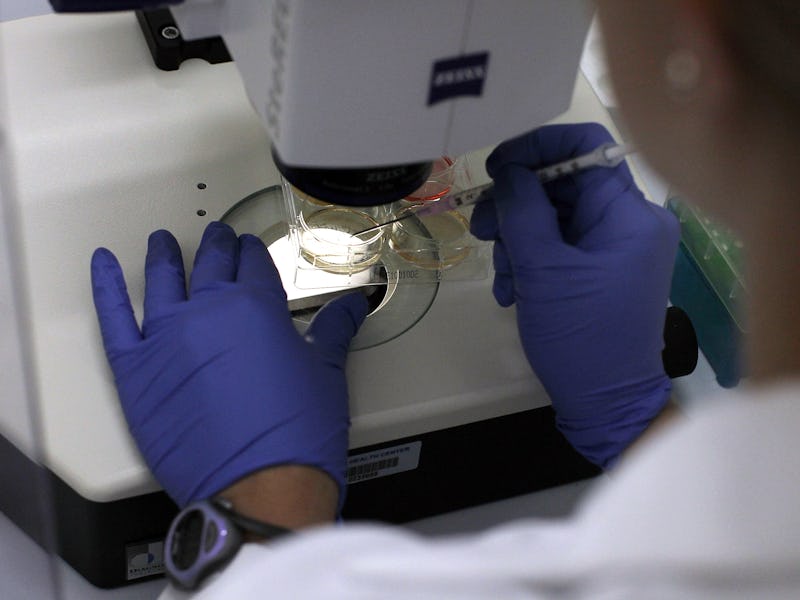British Scientists Request Permission to Genetically Modify Human Embryos
Technology makes embryo genome editing a possibility. But is it ethical?

Scientists at the Francis Crick Institute in London applied for permission this week to edit the genomes of human embryos, reigniting a debate opened months ago by Chinese researchers who claimed to have done the same thing.
The English team, led by Dr. Kathy Niakan, stressed in a statement that they only want to investigate the genes needed for a human fetus to form successfully. Their work is for research purposes only — that is, the genome-edited embryos will never be born. Even so, the scientific community is divided on the ethics of making permanent changes to human DNA: The Hinxton Group, a network of stem cell researchers, physicians, and ethicists, have acknowledged the grey area surrounding human germline modification.
“It is this step,” they wrote in a statement earlier this year, “which has multigenerational implications, that has been cause for deep concern and demands wide-ranging and open debate.”
While such research could provide insight into disease prevention and even eradication, it also has the potential to introduce new mutations into the human gene pool as well as lead to the possibility of “designer babies.”
The researchers sent their request to the Human Fertilisation and Embryology Authority, which oversees the use of human embryos in gametes and fertility treatments across the UK.
HFEA’s current regulations dictate that embryos — most of which are donated with consent by fertilization clinics — can only be used for research purposes. None of the genome-edited fetuses would be allowed to develop into a baby.
The genome editing debate is complicated further by the introduction of a new genome editing technique known as CRISPR/Cas9, which Niakan’s team plans to use. Compared to traditional methods, CRISPR/Cas9 is incredibly precise, allowing researchers to make tiny changes to DNA. It introduces a new level of accuracy that makes embryonic genome editing scientifically feasible. Whether it’s ethical is another question altogether.